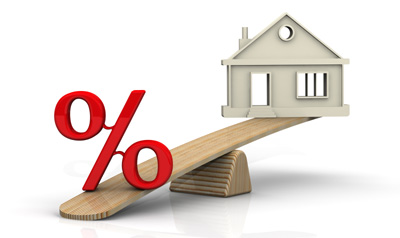A Comprehensive Guide on What Influences Mortgage Rates and How Borrowers Can Secure the Best Rates
When it comes to buying a home, one of the most important factors to consider is the mortgage rate. Even a slight difference in interest rates can have a significant impact on how much you’ll pay over the life of your loan. So, understanding what influences mortgage rates and how you can secure the best rate is key to making a smart financial decision.
In this guide, we’ll break down the factors that affect mortgage rates and offer practical tips for getting the best rate possible.
What Influences Mortgage Rates?
Mortgage rates are not random; they are influenced by a variety of economic and personal factors. Here are the key elements that affect mortgage rates:
- Federal Reserve Policies
The Federal Reserve doesn’t set mortgage rates directly, but its policies play a big role in determining them. When the Fed raises or lowers the federal funds rate (the interest rate at which banks lend to one another), it often affects borrowing costs across the economy, including mortgage rates. In general, when the Fed lowers rates, mortgage rates tend to fall, and when it raises rates, mortgage rates usually increase.
- Economic Conditions
Mortgage rates fluctuate based on broader economic conditions. In times of economic growth, mortgage rates often rise as demand for homes increases. In contrast, during a recession or periods of economic uncertainty, mortgage rates typically drop as the Fed attempts to stimulate the economy. Inflation also plays a significant role; as inflation rises, mortgage rates tend to follow suit.
- Bond Market Movements
Mortgage rates are closely tied to the bond market, particularly the yield on the 10-year Treasury note. When bond prices rise, yields fall, which can lead to lower mortgage rates. Conversely, when bond prices fall, yields rise, and so do mortgage rates. Mortgage lenders use the bond market to gauge long-term economic trends and adjust rates accordingly.
- Your Credit Score
One of the most personal factors affecting your mortgage rate is your credit score. Lenders view your credit score as an indicator of how likely you are to repay your mortgage. Borrowers with high credit scores are seen as less risky and, therefore, tend to qualify for lower interest rates. A credit score above 740 generally gets you the best rates, while a score below 620 might lead to higher rates or even loan denial.
- Loan Amount and Down Payment
The size of your loan and your down payment can also influence your mortgage rate. Borrowers who make larger down payments are considered less risky because they have more equity in the home. In addition, jumbo loans—loans that exceed the conforming loan limit—often come with higher rates because they carry more risk for the lender.
- Loan Type and Term
Different types of mortgages come with different rates. For example, adjustable-rate mortgages (ARMs) typically start with a lower rate than fixed-rate mortgages, but the rate can change over time. Meanwhile, shorter loan terms, like 15-year fixed mortgages, generally have lower interest rates than 30-year fixed mortgages because the lender takes on less long-term risk.
How to Secure the Best Mortgage Rates
While many factors that influence mortgage rates are out of your control, there are still steps you can take to secure the best rate possible:
- Improve Your Credit Score
Your credit score is one of the most important factors lenders consider. To improve your score:
- Pay all your bills on time.
- Keep your credit card balances low.
- Avoid opening new credit accounts close to applying for a mortgage.
- Regularly check your credit report for errors and dispute any inaccuracies.
By raising your credit score, you can qualify for better mortgage rates.
- Save for a Larger Down Payment
The more money you put down upfront, the less risky you appear to lenders. A down payment of 20% or more not only helps you avoid private mortgage insurance (PMI), but it can also result in a lower interest rate. Even if you can’t reach the 20% threshold, putting down a little more than the minimum can still save you money in the long run.
- Lock in Your Rate
Once you’ve found a good mortgage rate, consider locking it in. Rates can fluctuate daily, and locking in a rate ensures that it won’t change before you close on your home. Most lenders offer rate locks for 30 to 60 days, and some may offer longer terms for an additional fee.
- Consider Points
Points are fees you pay to the lender at closing in exchange for a lower interest rate. Each point typically costs 1% of the loan amount and reduces the rate by a small percentage. If you plan to stay in your home for a long time, paying points upfront can save you money over the life of the loan.
Conclusion
Understanding what influences mortgage rates and how to secure the best possible rate is crucial for any homebuyer. Economic factors like the Federal Reserve’s policies and the bond market play a significant role, but so do personal factors like your credit score and down payment.
By improving your credit, saving for a larger down payment, shopping around for lenders, and considering rate lock options, you can put yourself in the best position to secure a competitive mortgage rate that will save you money for years to come.
Now that you’re armed with this knowledge, you can approach the mortgage process with confidence and make the best financial decisions for your future home purchase!
If you are purchasing a home or looking for a new mortgage, call Ruth. Ruth Schoenherr is a mortgage broker who will help you find home loans in the Clearwater and Tampa Bay area, and serving all of Florida. For more information, go to her web site at www.ClearwaterMortgageBroker.net or call at 727 447-2418.

